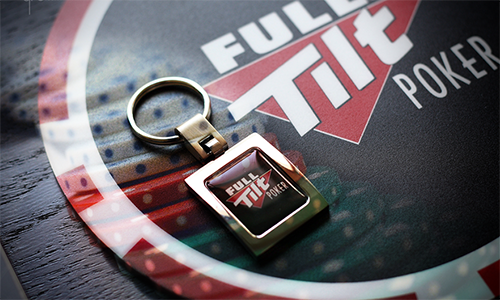Class-Action Lawsuit Targeting Full Tilt Poker Refiled in California After Federal Dismissal
From the annals of pernicious attorneys trying to wrest money from defendants by fatiguing said defendants and the US legal system in general comes the latest filing — or rather, re-filing — of a class-action suit against the original Full Tilt Poker and several prominent individuals long associated with that site.
 The lawsuit was filed on behalf of two defendants, former Full Tilt Poker players Lary Kennedy and Greg Amatoy. This latest lawsuit was filed in the Superior Court of California for the County of Los Angeles on Monday, August 14th. The lawsuit was filed by California attorney Cyrus Sanai, who has represented Kennedy and Amatoy while continuing to file class-action lawsuits against the collected Full Tilt entities, corporate and individual, stretching all the way back to 2009.
The lawsuit was filed on behalf of two defendants, former Full Tilt Poker players Lary Kennedy and Greg Amatoy. This latest lawsuit was filed in the Superior Court of California for the County of Los Angeles on Monday, August 14th. The lawsuit was filed by California attorney Cyrus Sanai, who has represented Kennedy and Amatoy while continuing to file class-action lawsuits against the collected Full Tilt entities, corporate and individual, stretching all the way back to 2009.
Named as defendants in this rendition of the same ol’ damned lawsuit are Chris Ferguson, Howard Lederer, Phil Gordon, Andy Bloch, Phil Ivey, John Juanda, Erick Lindgren, Erik Seidel, Mike Matusow, Allen Cunningham, Gus Hansen, Patrik Antonius, all part-owners of the original Full Tilt Poker’s various corporate entities.
Many of those entities are re-named here as corporate defendants, including: Tiltware LLC, Pocket Kings Ltd., Kolyma Corporation A.V.V., Pocket Kings Consulting Ltd., Filco Ltd., Vantage Ltd., Ranston Ltd., Mail Media Ltd., Oxalic Ltd., and Orinic Ltd. These are included despite the reality that they haven’t existed for years, all assets of the former Full Tilt Poker having been seized by the US government and sold to then-PokerStars parent Rational Group in 2012, as part of that site’s settlement with US authorities.
Also named as defendants in this latest action are California attorney Ian Imrich, the Law Offices of Ian Imrich APC, law firm Cozen O’Connor, French investor Bernard Tapie, and Tapie’s umbrella investment entity, Group Bernard Tapie. Several of these defendants and corporate entities were added as defendants years after the filing of the first case on behalf of Kennedy and Omotoy, back in 2009.
The lawsuit seeks $900 million in damages, plus interest dating back to last decade. The monetary claims include specific amounts of $10 to Omotoy and $120,000 to Kennedy, who years ago was involved in a controversial situation involving the banning of her account and the confiscation of funds therein. The remainder of the $900 million-plus would be awarded to the presumptive class, less significant attorney’s fees payable to Sanai.
There is, however, a lot more to this story. The filing of this case in California comes after the nearly-identical federal case was dismissed just over one month ago, on July 14th. Sanai, the attorney representing Kennedy and Omotoy, also filed a motion on August 11th to have the federal case’s presiding judge, George H. Wu, to alter his own judgment in the case, which was to dismiss the case. Wu’s ruling duly noted that while Full Tilt Poker had indeed conducted illegal online gambling business, the lawsuit offered no specificity as to any damages.
Wrote Wu, “In the end, the Court still finds the TAC deficient for the reasons stated in its July 6th Tentative Ruling and in its earlier decisions. Specifically, the Court is unpersuaded that moving Defendants directly and proximately caused Plaintiffs’ injuries through ‘rake’ collection underlying the allegedly illegal gambling business, based on factual allegations in the Third Amended Complaint. The injuries directly and proximately linked to any “illegal gambling business” were criminally prosecuted, successfully so, and were the subject of civil forfeiture action in alternative forums – and even there the civil RICO claims were dismissed for lack of direct and proximate causation.”
In response, Sanai not only filed the federal motion asking Wu to vacate his own order, and then order new briefings and oral arguments. The case was moved to federal court in 2010 and has since seen over 220 filings, the large majority being motions, joinders and memoranda of various sorts filed by Sanai.
Here’s the kicker: The third amended complaint (TAC) in the federal case is almost identical to the state-level case filed by Sanai in California earlier this week. The plaintiffs, defendants, and damages sought are exactly the same; in fact, the latest California filing includes page after page after page of allegations copied word for word from the federal case in which Wu ruled last month.
Given that that federal case is in essence the same case that was removed from California to the US’s federal system back in 2010, this very arguably is an attempt by Sanai to retry a case already ruled upon in California via its removal to the federal system. While it is technically true that some defendants were added to the original case after its removal to the federal system, the original California filing allowed for that via its inclusion of up to 60 “John Doe” defendants.
Another supposed difference might be that the federal case lists six causes of action, including a federal RICO (racketeering) allegation, whereas the latest California filing lists just five. However, that’s comically transparent: Action causes five and six of the just-ruled-upon federal case, including the RICO allegations, were simply combined, word for word, as Count Five (Relief Under California Business and Professions Code Section 17200) in the Cali case.
This latest California filing still includes comical present-tense allegations regarding various aspects of the original Full Tilt Poker’s operations. While it’s easy to see that stuff being carried forward in the federal matter, it’s … oh … six years out of date in this week’s California filing.
Whether this is as quickly tossed out as it deserves to be remains to be seen, and that’s despite the widespread antipathy and disgust much of the poker world (including this writer) has for the majority of the people behind the Full Tilt Poker.
Cyrus Sanai, the attorney representing Kennedy and Omotoy, has been in trouble for similar legal shenanigans on other occasions. Sanai and his younger brother, Fredrik, both faced sanctions in a case involving the Sanais’ parents and the sale of disputed property following what must have been a highly bitter separation.
Fredrik Sanai ended up being disbarred in two states (Washington and Oregon) over the pair’s ongoing and frivolous filings, which angered multiple judges forced to preside over the case. Older brother Cyrus, being licensed to practice in California, was not officially involved in the case, but repeatedly and in conjunction with Fredric, violated the judge’s orders.
A lengthy opinion offered during Fredric Sanai’s disbarment proceedings before the Washington State Supreme Court — written and agreed to by four of that court’s judges — is a marvel of insight into how the Sanais have conducted their legal business. It is absolutely worth a read by anyone seeking to understand the motivations behind this continuing case.
Some excerpts:
“Fredric obtained his license to practice law in Washington so that he could represent his mother. His brother, Cyrus Sanai, is also a lawyer and has also represented Viveca. While only Fredric’s conduct is before us, Fredric and Cyrus have often worked together even when instructed not to do so. As Judge Joseph A. Thibodeau of the Thurston County Superior Court observed, ‘although Cyrus and Fred[]ric have never been permitted to be part of this particular case, and that ruling has been upheld in a number of appellate courts, that they’re, in essence, acting in concert with each other.'”
“On behalf of [their mother] Viveca and others, Fredric and Cyrus filed multiple complaints alleging wiretap violations by [their father] Sassan in state and federal courts in Washington and California. All of these claims were dismissed as baseless. In the wiretap claims they sought over $9 million in damages and, based upon that claim for damages, attempted to get prejudgment injunctive relief to enjoin the sale of the very same property upon which they had been filing baseless lis pendens. Judge Zilly, among other things, observed that ‘Fredric Sanai’s failure to properly serve the subpoena was willful and in bad faith’ and noted that the plaintiffs had, amongst them, already been sanctioned around $130,000 in both federal and state courts. Ex. 252 at 5, 14. Judge Zilly stated, ‘[h]owever, Plaintiffs persist in their misconduct. Plaintiffs’ conduct shows that they will not respond to sanctions. Clearly no other sanction the Court might impose, except dismissal itself, would be effective in remedying this misconduct.’ Ex. 252, at 14. On November 4, 2005, the case was dismissed and Viveca and Fredric were sanctioned a total of $273,437.”
“In another unchallenged finding of fact, the discipline board found that Fredric and Cyrus (among others) sued their father in federal and state courts for allegedly wiretapping their calls. Initially, they asked for $1 million in damages; that ballooned to $16 million after the case had been dismissed or transferred multiple times. Fredric and Cyrus used that suit as a basis to file lis pendens on their father’s property, even after being told in no uncertain terms by Judge Zilly that they were not to do so. FOF 103 (“`Each of the plaintiffs herein shall cease and desist from taking any further action whatsoever to delay or obstruct the sale of the aforesaid real property.'” (quoting Ex. 207)). Merely five days later, Fredric filed another lis pendens. In ordering contempt sanctions, Judge Zilly wrote that Fredric and Cyrus ‘have made a mockery and are making a mockery of the legal system.'”
“[] Fredric has an unprecedented record of engaging in abusive and vexatious practices by filing baseless lawsuits and endless motions and appeals (often in direct violation of court orders) in courts up and down the West Coast.”
Here’s another marvel of a read, this one more directly involving Cyrus.
Subjectively, this latest refiling, of what is essentially the same action in the Full Tilt Poker matter, appears to be another example of the same familial behavior. It’s also worth noting that Sanai served as attorney representing yet another plaintiff in a large case involving Full Tilt Poker, that brought on behalf of Florida-based Cardroom International back in 2010.




















COMMENTS